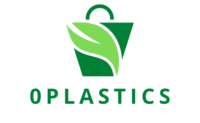Every year, 400 million tons of plastic waste are generated worldwide. Between 19 and 23 million tons of that plastic waste makes its way into aquatic ecosystems, and the remaining goes into the ground. An additional 92 million tons of cloth waste is generated annually.
Challa Kumar, professor emeritus of chemistry, “fed up” with the tremendous amount of toxic waste people continually pump into the environment, felt compelled to do something. As a chemist, doing something meant using his expertise to develop new, sustainable materials.
“Everyone should think about replacing fossil fuel-based materials with natural materials anywhere they can to help our civilization to survive,” Kumar says. “The house is on fire, we can’t wait. If the house is on fire and you start digging a well—that is not going to work. It’s time to start pouring water on the house.”
Kumar has developed two technologies that use proteins and cloth, respectively, to create new materials. UConn’s Technology Commercialization Services (TCS) has filed provisional patents for both technologies.
Inspired by nature’s ability to construct a diverse array of functional materials, Kumar and his team developed a method to produce continuously tunable non-toxic materials.
“Chemistry is the only thing standing in our way,” Kumar says. “If we understand protein chemistry, we can make protein materials as strong as a diamond or as soft as a feather.”
The first innovation is a process to transform naturally occurring proteins into plastic-like materials. Kumar’s student, Ankarao Kalluri ’23 Ph.D., worked on this project.
Proteins have “reactor groups” on their surfaces which can react with substances with which they come into contact. Using his knowledge of how these groups work, Kumar and his team used a chemical link to bind protein molecules together.
– https://phys.org/news/2023-11-chemist-plastic-alternatives-proteins-scraps.html
